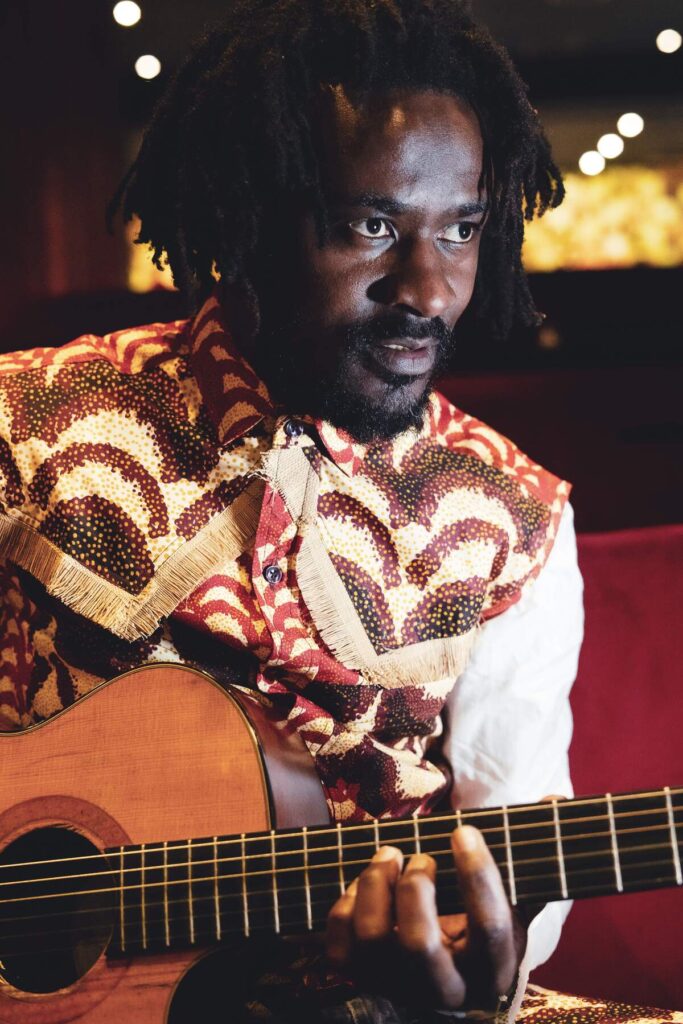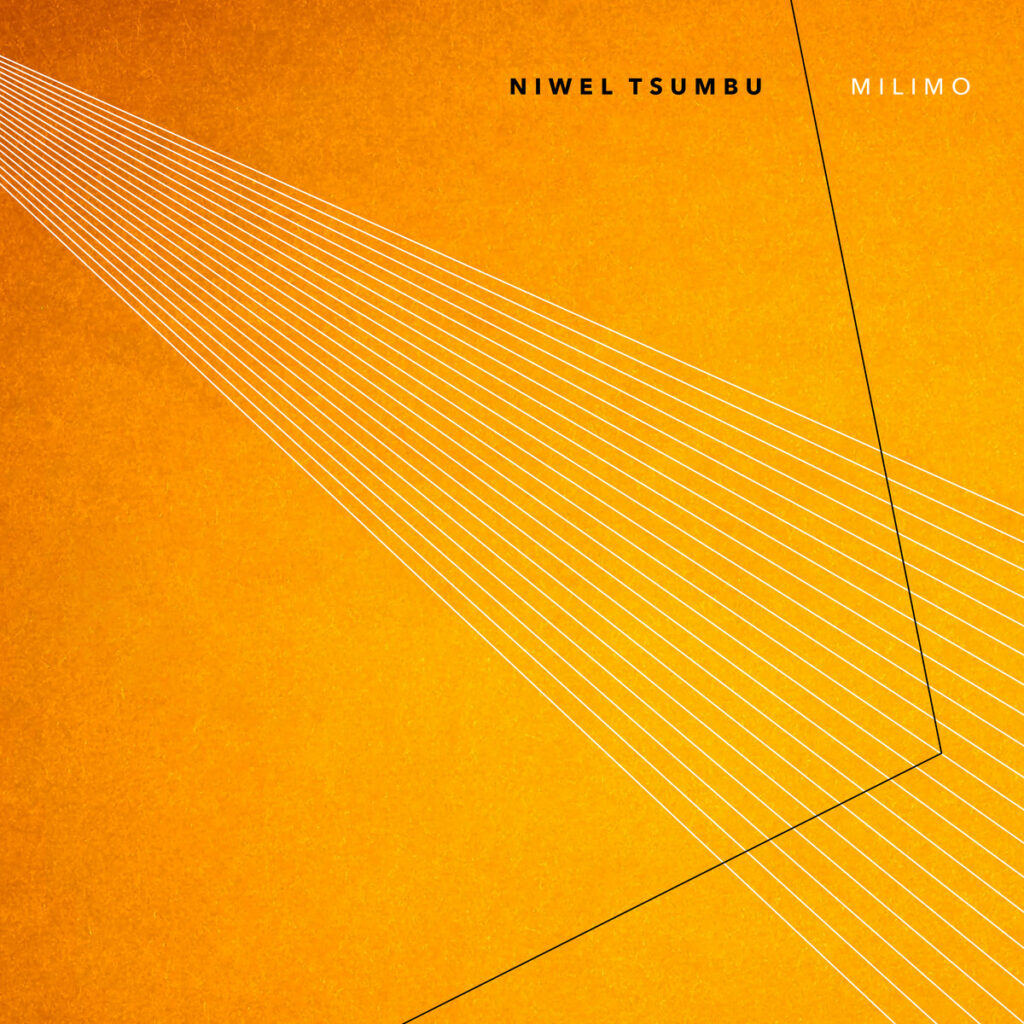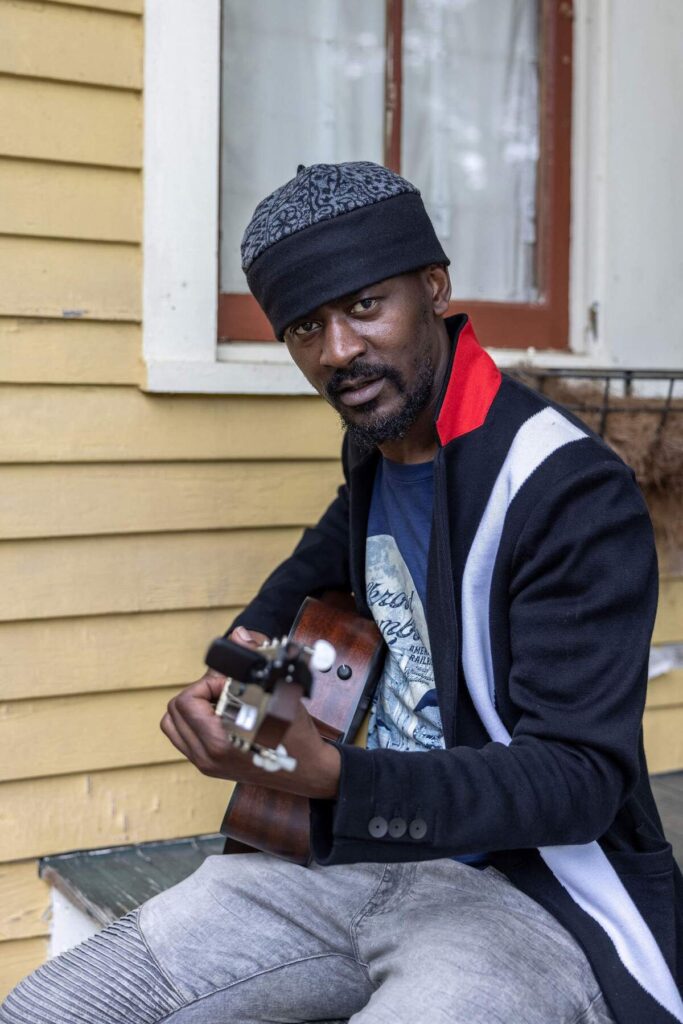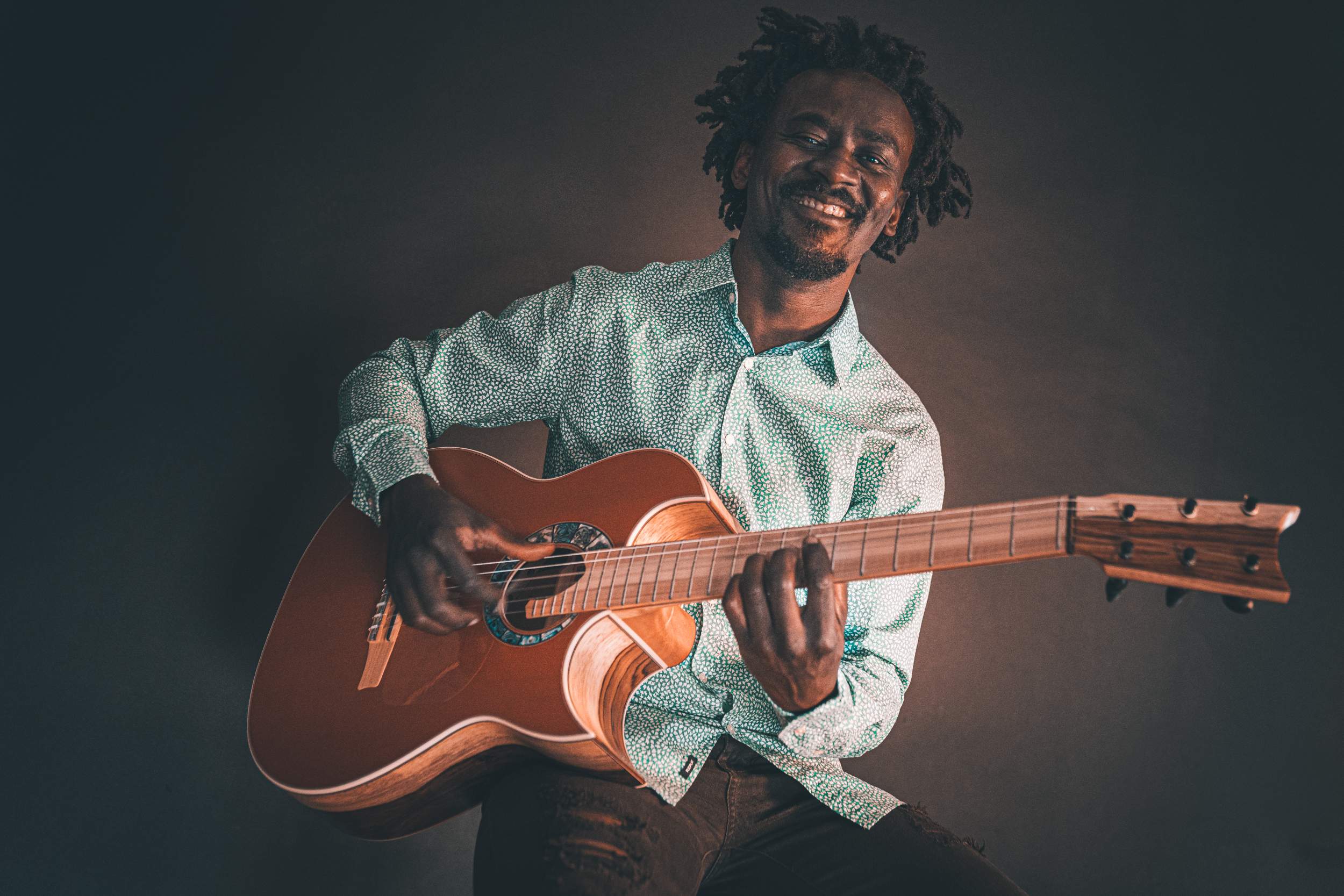Niwel Tsumbu | Interview | New Album, ‘Milimo’
Niwel Tsumbu’s new album ‘Milimo’ is a virtuosic masterpiece for solo guitar that transcends classical, African, and jazz music, and is set for release on Friday, October 4th, on Dublin-based label Diatribe Records.
Born in the Democratic Republic of Congo, Tsumbu grew up immersed in the rhythms of Soukous music before studying classical guitar and relocating to Ireland in 2004. His solo debut, ‘Milimo,’ was recorded with the assistance of Peter Gabriel’s house engineer, Dom Shaw, at Realworld Studios, drawing from African, European, and American influences to forge a new African Classical tradition. The album features a synthesis of influences including J.S. Bach, Paco de Lucia, Franco Luambo Makiadi, and Charlie Parker, showcasing Tsumbu’s ability to weave complex motifs with superhuman precision and detail. His style reflects a kinship with lone guitar mavericks like Gary Lucas and Vini Reilly, known for their unassumingly brilliant mastery of the fretboard. Ahead of the album’s release, Tsumbu is premiering the video for ‘Milimo’ exclusively on It’s Psychedelic Baby Magazine.
Niwel, your new album ‘Milimo’ feels like it’s not just an exploration of sound, but a journey through time, space, and spirit. When you pick up your guitar, are you channeling the Congo’s rivers, Bach’s counterpoint, or something that’s too wild to even name?
Yes, this is the first time I’ve recorded a solo album. I remember precisely—it was twenty years ago that I decided I should be able to perform as a soloist as well as in a group. A lot of the techniques I’m using on this album I’ve been developing for a long time, so it is a journey through time, for sure. ‘The Silent Within’ was the only track that was fully improvised in the studio—I was imagining the slow pace of the Congo River in Kinshasa while improvising. But in general, I don’t think of anything specific; when it’s going really well, I have an out-of-body experience where I’m watching myself play.
“Motion is my natural instinct”
You’ve mentioned influences like J.S. Bach and Charlie Parker, which might surprise those who think of you purely through the lens of African music. How do you make sense of this vast spectrum of inspiration? Do you ever feel like you’re speaking in multiple languages at once?
Yes! I’m inspired by many musicians. It’s amazing to me that in 2024 some people still talk about or look at “African” music as if it is its own entity, as if it just emerges out of Africa from nowhere. The truth is, all music comes from everywhere. Many African musicians today get inspiration from classical, jazz, and many other genres and artists from other continents. I didn’t just grow up with Congolese music. I consider classical music, jazz, or any other genre of music that I’ve heard as my traditional music as a human being. I don’t feel like I’m speaking many languages at all—music is a universal language. Personally speaking, music is like water to me—we may decide to call it names like the Congo River, Nile, Pacific Ocean, Mississippi River, and so on, but fundamentally it’s all just water—H2O.

You’ve been in Ireland for two decades now—what has that Irish rain, that landscape, done to your playing? Has it seeped into your strings, into the way you approach your guitar, or do you keep the Congo sun burning bright inside your music?
Hahaha! The Irish weather has made me a better musician and kept me fit, believe it or not. The first few years, I moaned about it all the time. I couldn’t keep my toes and fingers warm—it was always hard to play, especially outdoors, but even venues don’t turn on the heating, so… But then my wife introduced me to yoga, which has helped a lot, and I haven’t stopped doing it ever since. The Congo never leaves me, but I have played a lot of Irish traditional music, so there’s also a lot of Irishness in me—I can’t escape it.
When you’re performing solo, just you and your guitar, do you ever feel like you’re in conversation with the ghosts of musicians past? Who do you imagine is listening on the other side when you’re deep in the music?
I have an out-of-body experience whenever I’m playing by myself, especially at home, although it’s not as easy live because the amplification sometimes gets in the way. I do often think that Franco Luambo Makiadi is listening to me from beyond, and I hope that he appreciates my contribution as a Congolese guitarist.
Your album feels almost like a diary, each note telling a story, revealing something personal. Is there a track on ‘Milimo’ that holds a secret, something that listeners might not catch but is deeply significant to you?
I’m glad you felt that with this album! Yes, there are a couple of songs on the album that are deeply meaningful to me. Actually, I got the inspiration for the track ‘Milimo’ while on holiday in Kinshasa. I went to visit my grandmother, who was very sick in bed, on her way to the other world. I arrived there playing this antique instrument called the “Zande Harp,” which I had just bought, and she got so happy. With a big smile, she told me that the Zande Harp was the most popular instrument before the guitar came to the Congo, which I didn’t know before. She was also so happy because she hadn’t seen it since she was a teenager. That was the last conversation I had with her. I then decided to take the figure I was playing on the Zande Harp, transpose it onto the guitar, turn it into a full composition, and add paper to the guitar to get that old percussive sound, which is close to the Zande Harp. So I always see her big smile when I play this piece.

You’ve worked with so many artists across the globe—do you find yourself absorbing pieces of their souls, their cultures, into your music? What’s the wildest or most unexpected influence you’ve found creeping into your work?
Yes, I do absorb a lot of other people’s ideas. I’ve learned from everybody that I’ve collaborated with. Sometimes it was just on a cultural level, and other times, even deeper than that. I met two Spanish guitarists years ago who taught me a bit of the rasgueado technique, which I use quite a lot.
Gary Lucas and Vini Reilly are often hailed as lone wolves, masters of creating entire worlds with just their guitars. How does it feel to be in that lineage? Do you see yourself as a kindred spirit, or is your path something entirely different?
That’s great! I love playing by myself and creating with just the guitar, but I also love doing the same with other musicians.
There’s a lot of talk about genre these days—world music, jazz, classical—but ‘Milimo’ seems to float above all that, unanchored. How do you see your music in relation to these labels? Are they helpful guideposts, or do they just get in the way?
There are elements of a lot of genres in the music that I have heard so far in my life, but I am not intentionally trying to play all these genres. I listen to a lot of different music, and it all stays in me, then comes out that way.
Your music has this incredible sense of movement, like it’s constantly in motion, evolving. How much of that is intentional? Do you see your compositions as living, breathing entities that change every time you play them?
Yes, motion is my natural instinct—in fact, it’s all about movement for everybody too. I always leave space for improvisation in my compositions, so I’m sure I will be performing those tracks differently live.
If you could sit down with one of your musical heroes, living or dead, and just jam—who would it be, and what would you want to ask them before the first note even gets played?
Hmm, I have a few of them, and I’d probably ask each of them a different question. I would love to play with Zakir Hussain, but I’d ask him first if he wants to play with me.
You’ve been described as “an enchanted musician.” What does enchantment mean to you? Is it something you consciously strive for, or is it a byproduct of diving so deeply into your art?
I had to check in the dictionary to see the meaning of “enchanted,” as I didn’t even know what it meant. All compliments mean the same to me—people come up with all sorts of words to express their sentiments depending on how you make them feel. I look at compliments as appreciation and encouragement from the people who hear me.

Finally, when all the guitars are packed away, and the lights are out, what stays with you? What’s the one thing that continues to echo in your mind long after the last note has faded?
Hahaha! Ladies and gentlemen, when all the guitars are packed away, and the lights are out, the one thing that stays with me and continues to echo in my mind long after the last note has faded is—drum roll—more guitars, more notes! Especially when the fingers are not involved anymore, I can really play anything I want then
Klemen Breznikar
Niwel Tsumbu Official Website / Facebook / Instagram / Twitter / Bandcamp / YouTube
Diatribe Records Official Website / Facebook / Instagram / Twitter / Bandcamp / YouTube




